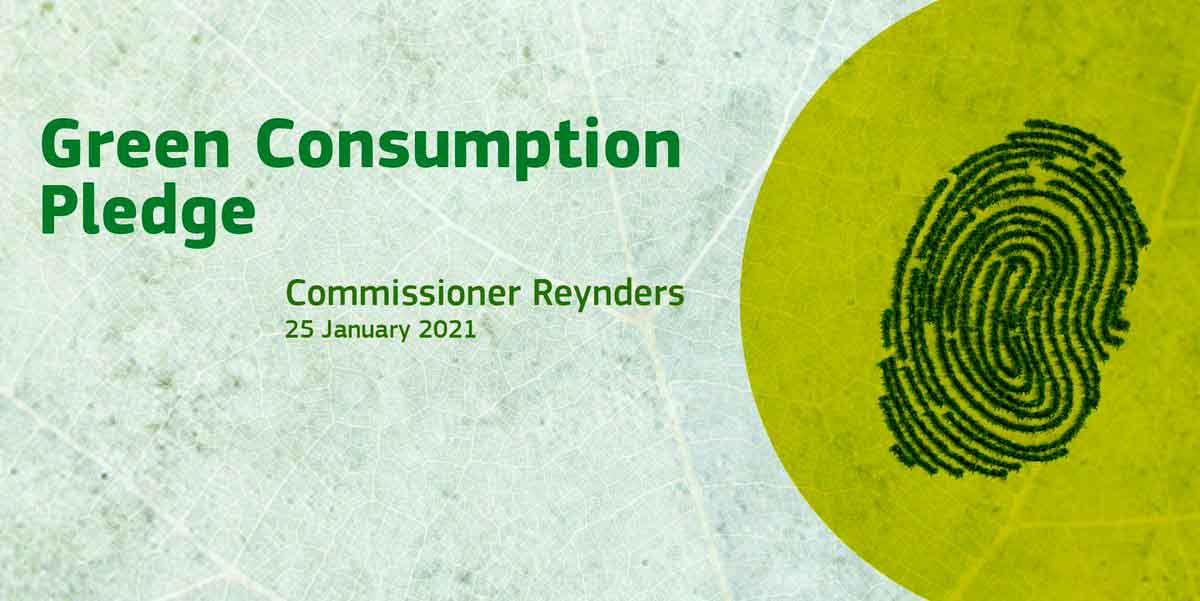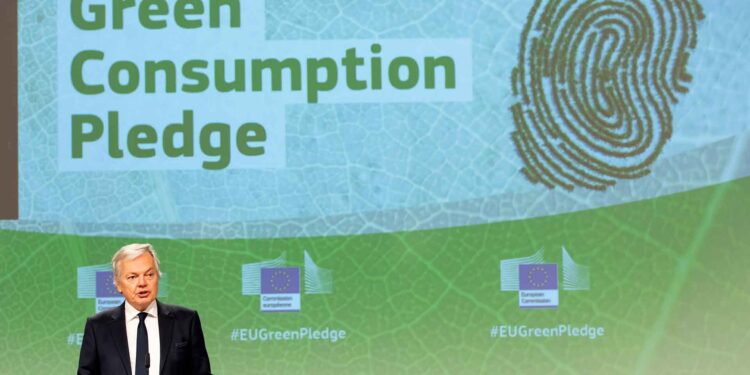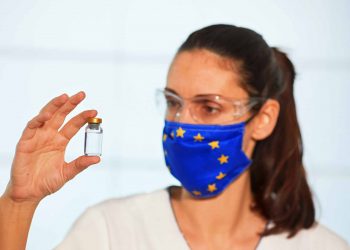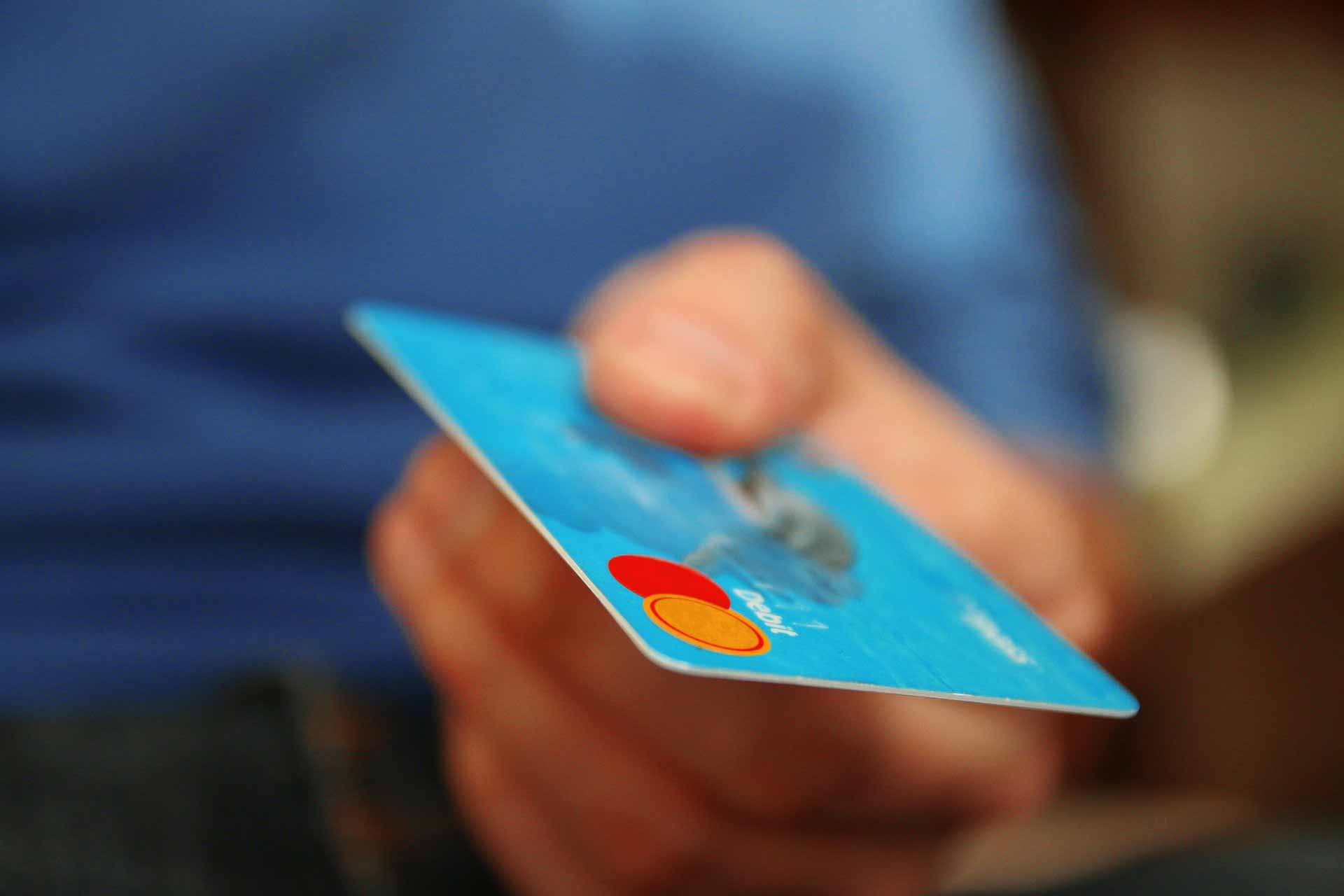European Commission is launching its new Green Consumption Pledge, the first initiative delivered under the New Consumer Agenda. The Green Consumption Pledge is part of the European Climate Pact which is an EU-wide initiative inviting people, communities and organisations to participate in climate action and build a greener Europe. With their signatures, companies promise to accelerate their contribution to a green transition. The pledges have been developed in a joint effort between the Commission and companies. Their aim is to accelerate the contribution of businesses to a sustainable economic recovery and to build consumer trust in the environmental performance of companies and products. Colruyt Group, Decathlon, LEGO Group, L’Oréal and Renewd are the first pioneering enterprises that are participating in this pilot project. The functioning of the Green Consumption Pledges will be assessed in a year from now, before next steps are taken.
Colruyt Group, Decathlon, LEGO Group, L’Oréal and Renewd promise to accelerate their contribution to a green transition.
Commissioner for Justice, Didier Reynders, said: “Empowering consumers to make green choices – that is what we set out to do last autumn, when we published the New Consumer Agenda. For informed choices, consumers need more transparency on the carbon footprint and sustainability of products. This is what today’s initiative is about. I therefore warmly welcome the five companies to the Green Pledge and I applaud them on their commitment to go beyond what is required by law. I look forward to working with many more companies, so we can boost further sustainable consumption in the EU”.
Five core pledges of Green Consumption Pledge
The Green Consumption Pledge is based on a set of five core pledges. To join it, companies commit to ambitious actions to improve their environmental impact and to help consumers make more sustainable purchases. They have to take concrete measures in at least three of the five pledge areas and they need to prove their progress with data that they then make public. Each pledging company will work with the Commission in complete transparency to ensure that the progress is reliable and verifiable. The five core pledge areas are the following:
- Calculate the carbon footprint of the company, including its supply chain, using the calculation methodology or environmental management scheme developed by the Commission, and establish proper due diligence processes towards achieving footprint reductions in line with the goals of the Paris Agreement.
- Calculate the carbon footprint of selected flagship products of the company, using the methodology developed by the Commission, and to achieve certain footprint reductions for the selected products and disclose the progress to the general public.
- Increase the sale of sustainable products or services within the total sales of the company or its selected business part.
- Commit part of the corporate public relations expenditure to the promotion of sustainable practices in line the Commission’s implementation of the European Green Deal policies and actions.
- Ensure information provided to consumers in relation to the company and product carbon footprints is easy to access, accurate and clear, and maintain this information up-to-date following any reductions or increases of the footprints.
Code of Conduct and Green Consumption Pledge
The Green Consumption Pledge initiative focuses on non-food products and it is complementary to the Code of Conduct that launched on 26 January, as part of the Farm to Fork strategy. The Code of Conduct will bring together stakeholders from the food system to make commitments for responsible business and marketing practices.
Any company from the non-food sectors as well as companies in the retail sector selling both food and non-food products interested in joining the Green Pledge can contact the European Commission before the end of March 2021. This initial pilot phase of the Green Consumption Pledge will have an update on January 2022. Before next steps will be taken, an evaluation of the functioning of the Pledge will be conducted in consultation with the participating companies, relevant consumer organisations and other stakeholders.
Green Consumption Pledge in Brussels

The New Consumer Agenda
The green transition is one of the key priorities of the New Consumer Agenda, aiming to ensure that sustainable products are available to consumers on the EU market and that consumers have better information to be able to make informed choices. Taking into account the key role that industry and trade operators play upstream, it is essential to complement legislative proposals with voluntary, non-regulatory initiatives. They all focus on pioneers in the industry that are keen to support the green transition. The Green Pledge is one of the non-regulatory initiatives of the New Consumer Agenda.
The Green Consumption Pledge is one of several initiatives the Commission undertakes in order to empower consumers to make more sustainable choices. Another initiative is the legislative proposal on substantiating green claims which the Commission will adopt later in 2021. This initiative will require companies to substantiate claims they make about the environmental footprint of their products and services by using standard methods for quantifying them. The aim is to make the claims reliable, comparable and verifiable across the EU – avoiding ‘greenwashing‘ (companies giving a false impression of their environmental impact). This should help commercial buyers and investors make more sustainable decisions and increase consumer confidence in green labels and information.
The European Climate Pact, adopted on 9 December 2020, aims to help spread scientifically sound information about climate action and provide practical advice for everyday life choices. It will support local initiatives and encourage climate action pledges by individuals or collectives, helping to mobilise support and participation.















